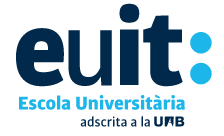Generalized cost-effectiveness analysis for national-level priority-setting in the health sector / Raymond Hutubessy, Dan Chisholm, Tessa Tan-Torres Edejer
Creator: Hutubessy, Raymond [autor] .
.
Material type:  ArticleContent type: text Media type: informàtic Carrier type: recurs en líniaSubject(s): Cost i efectivitat
ArticleContent type: text Media type: informàtic Carrier type: recurs en líniaSubject(s): Cost i efectivitat| Item type | Current library | Collection | Call number | URL | Status | Date due | Barcode | Course reserves | |
|---|---|---|---|---|---|---|---|---|---|
 Journal article
Journal article
|
Escola Universitària d'Infermeria i Teràpia Ocupacional de Terrassa Internet | En línia | Text complet | Exclòs de préstec | 0010173080228 |
Gestió i qualitat dels serveis en Infermeria 106108 Grau en Infermeria |
There are no comments on this title.
Log in to your account to post a comment.


